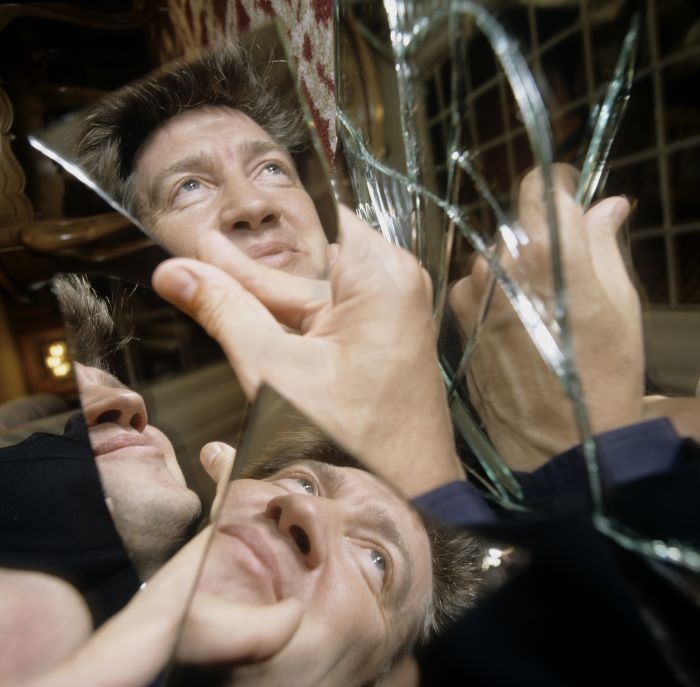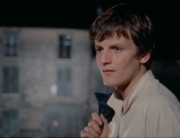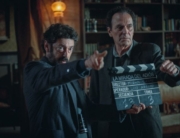David Lynch is an auteur so singular and so influential that it’s easy to take him for granted. Yet no matter how often he is imitated, there is really nothing that can diminish the power of his masterpieces. Mulholland Drive never ceases to be so strange and riveting, and Twin Peaks: The Return has a fair claim to being one of the boldest series made for television. Blue Velvet is essentially a fairy tale, with a curious protagonist who wanders into a monster’s den, yet it is as complex as the greatest works of art. I watch it about once a year, and often find myself wondering what exactly makes the movie so good.
What is the key, if there is one, to understanding Lynch? He has never made it easy for the interviewers who ask him. Filmmaker Alexandre O. Philippe, however, has one answer: The Wizard of Oz. For some viewers (me, initially), Philippe’s proposal might come as a bit of a curveball. Wild at Heart, granted, is full of explicit references to Oz. Red shoes (like Oz’s Dorothy’s) pop up here and there throughout his filmography, as do curtains, perhaps distantly related to the one the Wizard himself hides behind. The 1939 movie, starring Judy Garland, also would have been on TV every year when Lynch was a kid. Still, is this American classic really as central to understanding Lynch as, say, Woody Guthrie is for Bob Dylan? Philippe has assembled a group of film directors (mostly) to offer their perspective. Each one of them tackles this question from a different angle, replete with relevant clips.
Karyn Kusama (Destroyer) is the only one who really makes a case, partially because she tells us, convincingly, why we should be interested in analyzing Lynch’s work in this context. She recalls attending a screening of Mulholland Drive in which a member of the audience asked Lynch about the influence of Oz on his work. His answer: “Not a day goes by when I do not think of The Wizard of Oz.” None of the other commentators bother to say something as relevant as this.
Kusama points to Mulholland Drive as Lynch’s most Ozian film, and her argument is focused and compelling. Put briefly, she states that the journey of Betty Elms and the mysterious Rita, from one world to its nightmarish opposite, is not unlike Dorothy’s journey to Oz, from which, of course, she wakes. Mulholland Drive is therefore a variation on this American fairy tale, one that exposes the false hopes and frequent horrors of Hollywood, revealing a darker version of Dorothy’s quest and how the best and worst aspects of ourselves coexist. Arrestingly, Kusama suggests that Lynch is equally influenced by Garland’s tragic life, and it is easy to see Mulholland Drive as a near perfect expression of Dorothy and Garland’s coexistence.
It is not that the other commentators have nothing to offer. By and large, their arguments are terribly organized, and (with the exception of directors Justin Moorhead and Aaron Benson, who discuss the obviously Ozian Wild at Heart), no one convinces viewers that Oz really is essential to Lynch. So, if we can agree with Rodney Ascher (Room 237) that all of Lynch’s films involve characters who enter different worlds and are changed, as Dorothy herself enters Oz and is changed, we will not be convinced that this proves the influence of Oz over… well, many stories. He’s describing the oft cited hero’s journey.
If we can see that Oz is full of strange archetypes like the Wicked Witch, as John Waters does, and that Lynch’s filmography also embraces the wild side of life, nowhere does Waters sway us that this indeed comes from Oz. (He spends most of his section talking about his own movies.) Every other section (Kusama’s notwithstanding) is similarly muddled with the commentators failing to really prove the connection. A few, Waters and Ascher among them, actually state that they don’t know the extent to which Lynch was influenced by Oz. You hear that and wonder why this documentary exists.
Nevertheless, one finishes the film with the sense that there really are meaningful connections to be made between Lynch and Oz, not least of all because of the comparisons between clips of his films and Garland’s movie. The commentators are at their strongest when highlighting these visual juxtapositions, and there are many. There are other potentially meaningful arguments that these talking heads struggle to make, or make too obviously, about how Lynch’s films subvert and excavate classic American fairy tales, like The Wizard of Oz. However, the pundits needed to approach their arguments with more rigor to really make them effective. They should have followed Kusama’s example.

















Leave A Comment